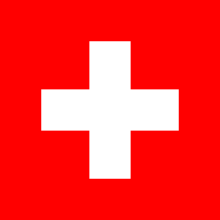| Switzerland at the 1992 Winter Paralympics | |
|---|---|
 | |
| IPC code | SUI |
| NPC | Swiss Paralympic Committee |
| Website | www |
| in Tignes-Albertville | |
| Competitors | 19 |
| Medals Ranked 8th |
|
| Winter Paralympics appearances (overview) | |
Switzerland competed at the 1992 Winter Paralympics in Tignes/Albertville, France. 19 competitors from Switzerland won 15 medals including 3 gold, 8 silver and 4 bronze and finished 8th in the medal table. [1]